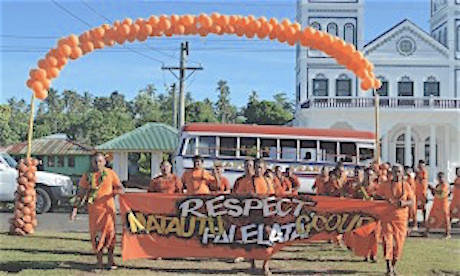Fa’afafines might have become members of the modern Samoan community but in the traditional Samoan set up, they were not part of the picture.
That’s the opinion of the Chairman of the National Council of Churches (N.C.C), Deacon Kasiano Leaupepe, in the wake of calls from Samoa Faafafine Association for the community to respect their rights.
Speaking during an interview with the Samoa Observer, Le’aupepe said fa’afafines are human beings created by God and they should be respected.
But he objected to a commonly held misconception that fa’afafines are part of the Samoan culture.
“Back in the days we hardly heard of this word fa’afafine because there were hardly any fa’afafines around in our days,” he said.
Ombudsman – “Fa’afafines are an important part of Samoan culture.”
At the same time Samoa’s Ombudsman, in response complaints made to the office about the recent publication of controversial article in the Samoa Observer, says that “Fa’afafine are an important part of Samoan culture.”
“They are traditionally known for their hard work and dedication to the family in carrying out the roles and responsibilities of both men and women.”
“We should always consider our fa’asamoa by ensuring that we afford fa’afafine feavaa’i (mutual respect) and refer to them in a manner that is both culturally and gender sensitive.”
The statement also refers to the article 1 of the Declaration on human rights; “All human beings are born free and equal in dignity and rights. They are endowed with reason and conscience and should act towards one another in a spirit of brotherhood.”
The statement continues: “This concept mirrors the core fa’asamoa principle of feavaa’i.”
“Like the human right to dignity, feavaa’i is demanded of all Samoans. It is something that should be afforded to all people, regardless of their gender, race or creed.”
“It should also be afforded at all stages of the human experience, from birth to adolescence, adulthood and even in death.”
Source
